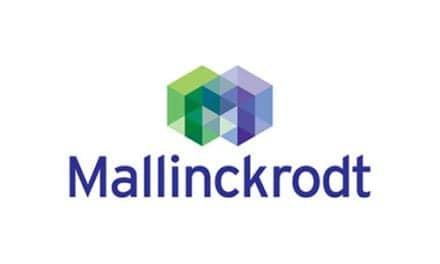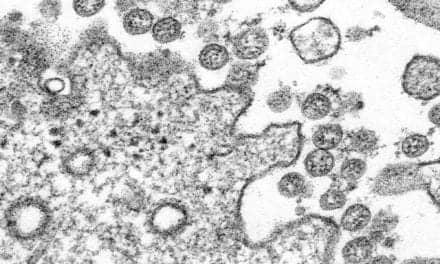Handwashing with soap can reduce cases of acute respiratory infection (ARI) in low- and middle-income countries by as much as 17%, according to a review published in The Lancet.
The findings were based on an analysis of studies involving 160,000 people across three continents and highlighted what the research team called a “missed opportunity” to reduce the burden of respiratory disease. The research, funded in part by the Reckitt Global Hygiene Institute, reinforces the idea that efforts to encourage frequent and adequate hand hygiene must continue outside of pandemics.
“This research is the crystallization of a message many in the global health space have been trying to spread for years: Hand hygiene is not just something to be aware of during times of outbreaks but at all times. Without it, people get sick unnecessarily and even die. The majority of those deaths are taking place in the world’s poorest countries,” says David Wheeler, operations and strategy director at Reckitt Global Hygiene Institute, in a release.
ARIs are infections of the respiratory tract by viruses or bacteria that affect breathing. They can be categorized into two types, upper (URI) or lower (LRI), depending on the location of infection either above or below the voice box, respectively.
Recently the virus SARS-CoV-2 (responsible for COVID-19, an ARI) led governments worldwide to recommend public health measures, including handwashing with soap to combat infection.
While COVID-19 has drawn unprecedented attention, endemic ARIs remain a leading cause of mortality worldwide. Globally, ARIs are responsible for as many as 2.5 million deaths in 2019, with over 80% occurring in low- and middle-income countries.
Previous meta-analyses investigated the impact of handwashing with soap on ARIs, but analyses have been limited in scope (including only certain study designs), have rarely focused on low- and middle-income countries where the burden is highest, or have examined only viral ARIs, according to researchers.
In this review, the team—drawn from the London School of Hygiene and Tropical Medicine as well as the World Health Organization and other universities—analyzed 26 studies investigating the impact of interventions promoting handwashing with soap in domestic, school, or childcare settings in low- and middle-income countries on morbidity from ARIs.
These studies included 160,000 participants from across Asia, Africa, and Latin America between the early 2000s and May 2021, with eligible interventions ranging from providing adequate facilities and products to promoting their use via mass media campaigns or door-to-door visits.
Overall, interventions promoting handwashing with soap were responsible for reducing the morbidity, or burden, of ARI by 17% compared to when no handwashing intervention was implicated. Broken down by type of ARI, interventions reduced LRI burden by 22% and URI by 26%, although the team found no evidence for their effect on test-confirmed influenza. No included studies measured a COVID-19 outcome.
Lead author Ian Ross, PhD, from London School of Hygiene and Tropical Medicine, says in a release, “Today, the UN estimates that 1.8 billion people lack access to a water tap in their home or yard. Our results show what might be achieved with sustained government action to promote handwashing and ensure universal access to the underlying infrastructure of water supply and soap.”
In 2019, 2.5 million people died from acute respiratory infections (ARIs), which include the flu, pneumococcal disease, and colds—marking them as a leading cause of morbidity and mortality. Over 80% of those deaths took place in low- and middle-income countries, such as Afghanistan, Yemen, and Egypt, where 27% of people don’t have a water supply in their homes, making handwashing a luxury. Around the world, one in three people still lack what they need to wash their hands with soap.
The need for frequent and thorough hand washing was a key prevention method encouraged globally throughout the COVID-19 pandemic yet, according to the researchers, handwashing campaigns in “normal times” are “rare” despite being a critical deterrent against a variety of other illnesses, including gastrointestinal infections and norovirus alongside ARIs.
“Since cases of COVID-19 have decreased, so too has the enthusiasm for hygiene, yet it is vital in fighting these more common illnesses. The report’s findings should serve as a catalyst for action in this regard, reinvigorating what have become stagnant efforts to invest in and promote hand hygiene globally,” says Wheeler in the release. “Better hygiene will lead to fewer cases of illness and death whilst helping to avoid missed days of school for children and of work for adults. All of this will bolster countries’ economies, many of which have been waning in the wake of COVID-19 and other global events. This latest research is more evidence of how something as simple as keeping hands clean can safeguard public health and can help decision-makers as they think about their health budgets and the initiatives they’re investing in.”
Reckitt Global Hygiene Institute’s focus is on generating a significant body of science-based research pertaining to hygiene behaviors and their impact so that leaders can make more evidence-based decisions around public health.
In this latest paper, researchers have called for decision-makers to more extensively promote handwashing measures while investing in water supply and handwashing facilities.
“Our results show what might be achieved with sustained government action to promote handwashing and ensure universal access to the underlying infrastructure of water supply and soap,” says Ross, lead author and assistant professor of health economics, in the release.










